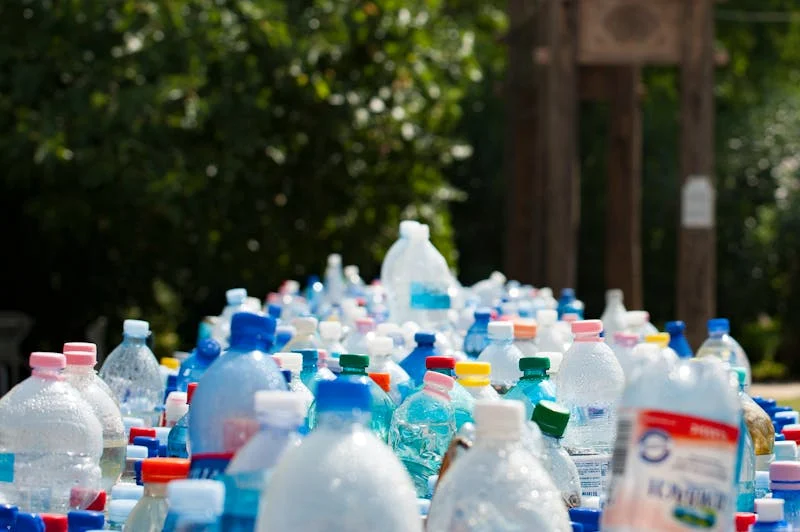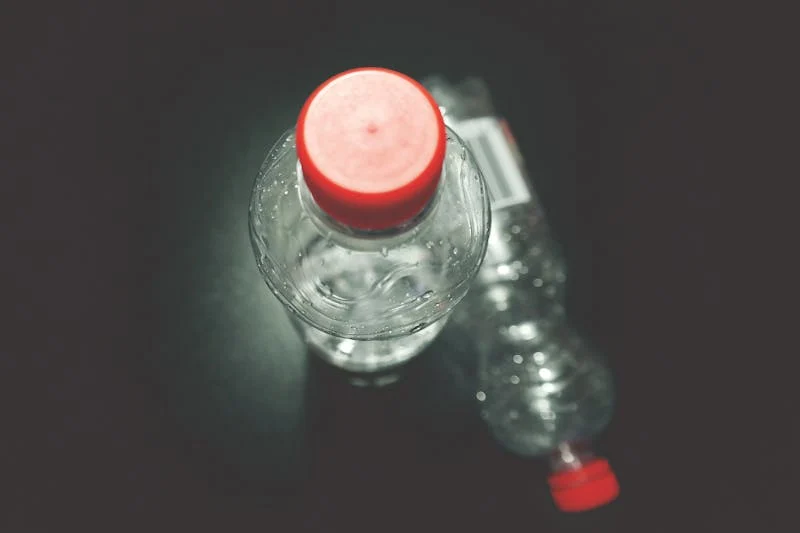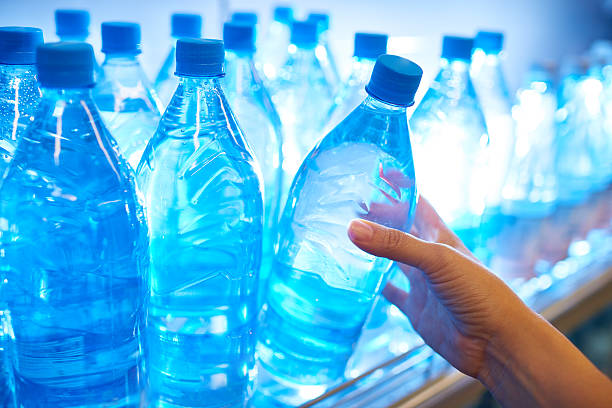It is best to avoid drinking water from reused plastic water botters. Get expert’s advice from wellhealthorganic.com:know-why-not-to-reuse-plastic-water-bottles-know-its-reason-in-hindi by reading the blog post.
Introduction
We all know staying hydrated is crucial, but the convenience of grabbing a plastic water bottle comes at a cost. While refilling might seem eco-friendly, those single-use bottles pose hidden dangers. This introduction will delve into the reasons why reusing plastic water bottles isn’t the best solution. We’ll explore how these bottles can harbor bacteria, potentially leach harmful chemicals, and ultimately contribute to a larger environmental problem. By understanding the downsides of reused plastic, we can discover better ways to quench our thirst and protect our planet.
Environmental Consequences
While refilling plastic water bottles might seem eco-friendly, there are environmental downsides to consider. Here’s why:
- Microplastic Release: Over time, scratches and wear on the bottle’s interior can release tiny plastic particles called microplastics. These can contaminate your water and potentially enter the environment if the bottle isn’t disposed of properly.
- Chemical Leaching: Plastic can leach chemicals like BPA and phthalates, especially when exposed to heat or sunlight. These chemicals have been linked to various health concerns and can contaminate your water.
- Recycling Challenges: Even if you recycle your used bottle, the recycling process itself isn’t perfect. Contamination from non-recyclables can ruin entire batches, and only a fraction of plastic waste actually gets recycled.
In conclusion, while reusing plastic bottles might seem better than constantly buying new ones, it’s not the most environmentally friendly solution. Opting for a reusable bottle made from stainless steel or glass eliminates these concerns and creates less overall plastic waste.
Health Risks

Reusing plastic water bottles can pose some health risks:
- Chemical leaching: Over time, chemicals from the plastic can seep into your drink, especially with heat, sunlight, or scratches. These chemicals, like BPA, are linked to health problems.
- Bacteria growth: Plastic water bottles can harbor bacteria, especially in nooks and crannies. Proper cleaning is crucial, but these bottles aren’t always designed for deep cleaning.
For your health, it’s best to stick to reusable bottles designed for multiple uses. These are typically easier to clean and made from materials less likely to leach chemicals.
Microplastic Menace: In Every Sip
Microplastics” itself is a technical term, but “Invisible Threat” paints a vivid picture of something harmful that’s difficult to detect. “Lurking in Every Sip” personalizes the issue, making it clear that microplastics are not just an environmental problem, but one that could directly impact our health.
Here are some ways you could expand on this title:
- Highlight the source: “Microplastics from Clothes to Coffee: The Invisible Threat Lurking in Every Sip”
- Focus on the health impact: “Microplastics in Your Water: The Invisible Threat Harming Your Health”
- Offer a solution: “Microplastics: The Invisible Threat Lurking in Every Sip – What You Can Do.”
Recycling Plastic Bottles Myth

There are definitely some misconceptions about plastic bottle recycling. Here’s a debunking of a common myth:
Myth: Recycling plastic bottles is a sham.
Reality: While recycling isn’t a perfect solution, it does have value. Plastic can be reborn into new products, reducing reliance on virgin plastic and conserving resources. However, challenges exist. Only certain types of plastic are recyclable, and contamination with food or other materials can ruin a whole batch. Additionally, most recycled plastic ends up “downcycled” into lower-quality products, not new bottles.
So, it’s not a magical solution, but it can be part of a larger strategy to reduce plastic waste.
Ditching Disposables: A Cultural Shift on Hydration
A movement is brewing, swapping single-use plastic water bottles for reusable alternatives. This cultural shift is driven by growing awareness of plastic pollution’s impact on our planet. Images of overflowing landfills and microplastics in our oceans are sparking a change in mindset.
People are embracing reusable bottles made from stainless steel or glass, often showcasing them with pride. Celebrities and influencers endorsing these sustainable choices further propel the trend. Stores are stocking a wider variety of reusable options, making it easier for everyone to participate. This shift isn’t just about convenience; it’s a badge of environmental consciousness. By carrying a reusable bottle, we signal a commitment to a healthier planet, one sip at a time.
Sustainable Packaging Innovations

The war on plastic waste is driving innovation in sustainable water bottle packaging. Here are some exciting developments:
- Biodegradable Materials: Bottles made from PLA (plant-based plastic) or even seaweed are breaking down naturally, reducing landfill burden.
- Reduced Plastic Bottles: Refill systems like Vittel’s GO offer a reusable case with minimal plastic refills. This cuts down on overall plastic use.
- Recyclable Hybrids: Nestle’s Vittel Hybrid bottle combines a super-thin recycled plastic inner layer with a recyclable cardboard outer shell. This reduces plastic use while maintaining recyclability.
- Paper Bottles: Companies like Paper Water Bottle are creating entirely biodegradable bottles from paper pulp with a thin internal barrier.
These innovations offer promising solutions for a more sustainable future of hydration!
Plastic Water Bottles: Corporate Responsibility
Plastic water bottles and corporate responsibility are increasingly at odds. While companies profit from their convenience, the environmental impact is significant. Production uses fossil fuels and creates greenhouse gases. Disposal is a major issue, with many bottles ending up in landfills or polluting oceans.
Companies are under pressure to act. Consumers are becoming more environmentally conscious and expect sustainable practices. Responsible corporations are exploring solutions:
- Reduce plastic use: This could involve using thinner bottles, making them more reusable, or even switching to alternative packaging like aluminum.
- Improve recycling: Investing in better recycling infrastructure or partnering with organizations that collect plastic waste can significantly reduce pollution.
- Promote refillable bottles: Encouraging consumers to use refillable bottles with public water fountains or filtration systems can dramatically decrease reliance on single-use plastics.
By taking these steps, bottled water companies can demonstrate their commitment to the environment and build a more sustainable future.
Kicking the Plastic Habit: Reusing Bottles for a Healthier Planet
Plastic bottles are a double-edged sword: convenient, but a major contributor to pollution. While recycling is important, reusing bottles is even better! Here’s how education and awareness can turn the tide:
- The Problem: Inform audiences about the lengthy lifespan (hundreds of years!) of plastic in landfills and oceans. Highlight the harm to wildlife from ingestion and entanglement.
- The Power of Reuse: Promote reusable water bottles as a healthy and eco-friendly alternative. Schools can encourage students to decorate their own bottles, making them personal and fostering pride in using them.
- Beyond Bottles: Broaden the message to include other reusables. Lunch containers, shopping bags, and even coffee mugs can all help cut down on plastic waste.
- Make it Fun! Organize contests or challenges to see who can reuse the most bottles in a week. Educational games and activities can teach children about the plastic lifecycle in a captivating way.
By educating and inspiring people to reuse, we can significantly reduce plastic waste and create a healthier planet for everyone.
Combating Plastic Waste: Policy Interventions for Reuse
The deluge of plastic bottles is a significant environmental concern. To tackle this, a shift from single-use to reusable bottles needs to be encouraged. Here are some policy interventions that can promote reuse:
- Deposit Return Systems (DRS): Implement a system where consumers receive a small deposit for returning used bottles. This incentivizes reuse and fosters a collection infrastructure.
- Extended Producer Responsibility (EPR): Make beverage companies financially responsible for the lifecycle of their products, including collection and recycling. This encourages them to invest in reusable packaging solutions.
- Regulation and Bans: Consider phasing out single-use plastic bottles or mandating a minimum percentage of reusable bottles in stores.
These policies, coupled with public awareness campaigns, can nudge consumers towards reusable alternatives and create a more sustainable beverage consumption system.
Ditch the Drip, Rep the Reusable!
Let’s kick plastic bottle waste to the curb! Join our community effort to promote reusable water bottles. We’ll hold workshops on fun DIY decorating, organize refill station hunts, and even host a “Trashion Show” featuring outfits made from recycled plastic. Together, we can show our love for hydration and the environment, one reusable bottle at a time!
No Plastic Bottle Reuse: The Power in Your Hands
Plastic bottle waste chokes our landfills and oceans. But there’s a solution within reach: reuse! Opting for a refillable water bottle is a simple act with big results. You’ll be saying no to single-use plastic, reducing your environmental footprint. Plus, with a cool reusable bottle, you’ll be making a statement – a statement that says you care about the planet, and you have the power to make a difference.
Kicking the Plastic Habit: A Multifaceted Approach
Eradicating plastic bottle use requires a holistic strategy. We need a multi-pronged attack:
- Reduce Demand: Encourage refillable bottles and invest in public water fountains. Promote consumer awareness and eco-friendly alternatives.
- Redesign Production: Incentivize companies to develop biodegradable or easily recyclable materials. Invest in reusable bottle deposit programs.
- Repurpose Waste: Explore innovative ways to reuse plastic bottles, like transforming them into building materials or clothing.
By combining these efforts, we can drastically reduce plastic bottle dependence and create a more sustainable future.
Kicking the Plastic Habit: A Global Teamwork Challenge

Curbing plastic bottle waste requires a global handshake. Governments, businesses, and consumers can join forces to:
- Incentivize Reuse: Governments can create policies that favor refillable bottles and reward responsible consumption.
- Invest in Infrastructure: Businesses can develop standardized reusable bottle systems and refill stations for easy consumer adoption.
- Shift Consumer Habits: Awareness campaigns can educate consumers on the environmental impact and empower them to choose reusable options.
Together, we can turn the tide on plastic pollution and create a world where convenience meets sustainability.
Be the Change: No Plastic Bottle Reuse – A Youth Leadership Movement
Plastic pollution is a growing threat, but young leaders are rising to the challenge! We’re launching the “No Plastic Bottle Reuse” movement. Our mission: empower young people to ditch single-use bottles and embrace reusable alternatives.
We’ll:
- Spread awareness: Educate classmates, families, and communities about the environmental impact of plastic bottles.
- Get creative: Organize art contests, design upcycled bottle holders, and hold “Refill Revolution” days at schools.
- Advocate for change: Lobby for water fountain repairs and push for policies that encourage refillable bottles.
Join us and be a leader in creating a plastic-free future!
Reusing Plastic Bottles: Ethical Consumption on the Fence
Reusing plastic bottles is a double-edged sword in ethical consumption. On the positive side, it keeps plastic out of landfills and oceans. It reduces demand for new plastic, lessening environmental impact. However, reusability depends on the bottle type and cleaning practices. Leaching of chemicals from some plastics can be harmful, and improper cleaning can harbor bacteria.
The most ethical approach is to prioritize refillable, non-plastic bottles. But reusing plastic occasionally can be a responsible compromise, especially if you understand the limitations and ensure proper cleaning.
Ditching Disposables: Resilience and Reuse
Plastic bottle reliance? Not anymore! We’re adapting by embracing reuse. By refilling sturdy, reusable bottles, we become resilient against the tide of plastic waste. This simple switch fosters a more sustainable lifestyle, reducing our environmental footprint and demonstrating our ability to overcome the challenge of plastic pollution. It’s a win-win for both us and the planet.
To Sum Up
While reusing plastic bottles might seem eco-friendly, it’s generally not recommended. Microplastics can leach into drinks, especially with heat exposure or scratches. Additionally, these bottles degrade over time, harboring bacteria. Opt for reusable bottles made from safe materials like stainless steel or glass. It’s a better choice for your health and the planet.
Also Read:
- wellhealthorganic.com : key signs of gastroenteritis
- wellhealthorganic.com/easily-remove-dark-spots-lemon-juice


